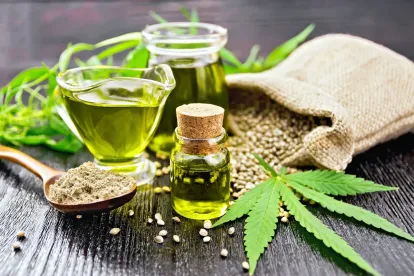The U.S. Department of Transportation Office of Drug and Alcohol Policy Compliance published a notice on February 18, 2020 concerning the use of hemp and cannabidiol (CBD) products by safety-sensitive employees regulated by DOT’s agencies (including the Federal Aviation Administration, the Federal Motor Carrier Safety Administration, the Federal Transit Administration, the Federal Railroad Administration, and the Pipeline and Hazardous Materials Administration, as well as the U.S. Coast Guard). Among other things, ODAPC stated the following:
“The Agricultural Improvement Act of 2018, Pub. L. 115-334, (Farm Bill) removed hemp from the definition of marijuana under the Controlled Substances Act. Under the Farm Bill, hemp-derived products containing a concentration of up to 0.3% tetrahydrocannabinol (THC) are not controlled substances. THC is the primary psychoactive component of marijuana. Any product, including “Cannabidiol” (CBD) products, with a concentration of more than 0.3% THC remains classified as marijuana, a Schedule I drug under the Controlled Substances Act.
We have had inquiries about whether the Department of Transportation-regulated safety-sensitive employees can use CBD products. Safety-sensitive employees who are subject to drug testing specified under 49 CFR part 40 (Part 40) include: pilots, school bus drivers, truck drivers, train engineers, transit vehicle operators, aircraft maintenance personnel, fire-armed transit security personnel, ship captains, and pipeline emergency response personnel, among others.
It is important for all employers and safety-sensitive employees to know:
-
The Department of Transportation requires testing for marijuana and not CBD.
-
The labeling of many CBD products may be misleading because the products could contain higher levels of THC than what the product label states. The Food and Drug Administration (FDA) does not currently certify the levels of THC in CBD products, so there is no Federal oversight to ensure that the labels are accurate. The FDA has cautioned the public that: “Consumers should beware purchasing and using any [CBD] products.” The FDA has stated: “It is currently illegal to market CBD by adding it to a food or labeling it as a dietary supplement.” Also, the FDA has issued several warning letters to companies because their products contained more CBD than indicated on the product label.
-
The Department of Transportation’s Drug and Alcohol Testing Regulation, Part 40, does not authorize the use of Schedule I drugs, including marijuana, for any reason. Furthermore, CBD use is not a legitimate medical explanation for a laboratory-confirmed marijuana positive result. Therefore, Medical Review Officers will verify a drug test confirmed at the appropriate cutoffs as positive, even if an employee claims they only used a CBD product.
It remains unacceptable for any safety-sensitive employee subject to the Department of Transportation’s drug testing regulations to use marijuana. Since the use of CBD products could lead to a positive drug test result, Department of Transportation-regulated safety-sensitive employees should exercise caution when considering whether to use CBD products.”




 />i
/>i

